September 11 stands as one of history’s most eventful days, witnessing the rise and fall of empires, groundbreaking discoveries, and moments that shaped our modern world across centuries of human achievement.
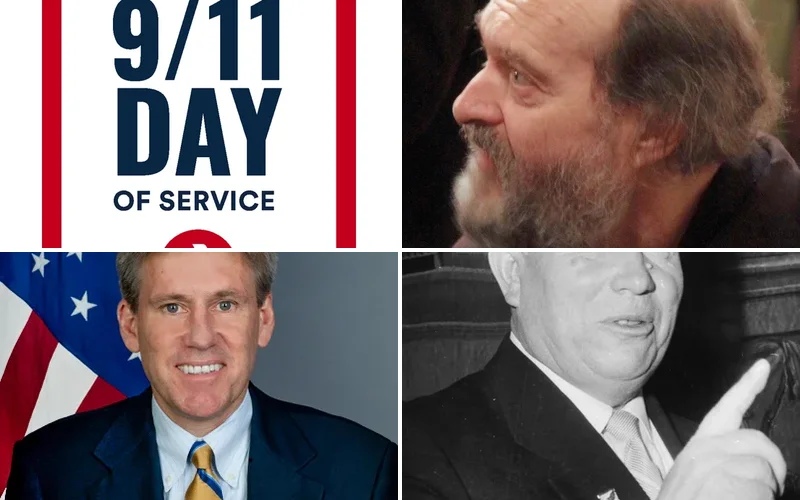
Politics and Government Events on September 11
1973 – Chilean Military Coup Overthrows Salvador Allende
General Augusto Pinochet led a devastating military coup that toppled Chile’s democratically elected government. The assault on La Moneda Palace marked the end of Salvador Allende’s presidency and democratic rule.
Pinochet’s forces seized control of strategic locations throughout Santiago while international observers watched in horror. This coup initiated nearly two decades of authoritarian military dictatorship that would reshape Chilean society.
1941 – Charles Lindbergh Delivers Controversial Des Moines Speech
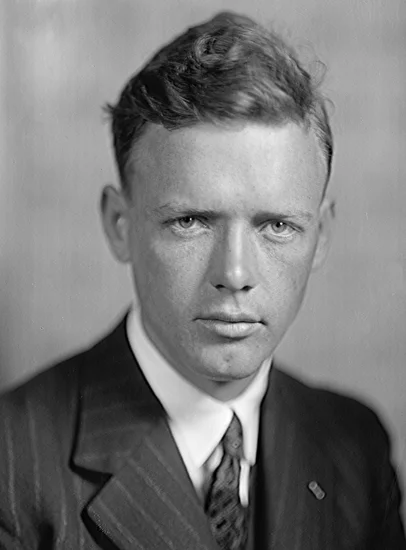
The famous aviator stunned America by accusing British, Jewish, and Roosevelt administration figures of conspiring to drag the nation into war. His inflammatory remarks divided public opinion and damaged his reputation permanently.
Lindbergh’s isolationist stance reflected deep American ambivalence about entering World War II. The speech effectively ended his influence in national politics and marked his fall from heroic status.
1997 – Scotland Votes for Parliamentary Devolution
Scottish voters overwhelmingly supported establishing a devolved parliament within the United Kingdom framework. This historic referendum represented Scotland’s strongest assertion of self-governance since the 1707 Act of Union.
The decisive vote paved the way for the Scottish Parliament’s restoration after nearly three centuries. This constitutional change fundamentally altered the balance of power between Scotland and Westminster.
2001 – September 11 Terrorist Attacks Transform Global Security

Nineteen al-Qaeda terrorists executed coordinated attacks using hijacked aircraft against American targets. The World Trade Center towers collapsed while the Pentagon suffered severe damage, killing 2,977 people.
These attacks fundamentally altered international relations and domestic security policies worldwide. The tragedy sparked America’s “War on Terror” and reshaped global counterterrorism strategies for decades.
1980 – Chile Adopts Pinochet’s Controversial Constitution
Augusto Pinochet’s military regime established a new constitution that legitimized authoritarian rule while restricting democratic freedoms. The document embedded military influence within civilian government structures.
This constitution remained highly controversial even after Chile’s return to democracy. Many provisions protecting military interests and limiting presidential powers persisted well into the democratic era.
Military and Naval History on September 11
1914 – Australia Invades German New Guinea
Australian forces launched their first major World War I offensive by attacking German colonial positions in New Guinea. The Battle of Bita Paka demonstrated Australia’s commitment to supporting British imperial interests.
Australian troops defeated German defenders despite facing challenging tropical conditions and unfamiliar terrain. This victory secured vital strategic territory and eliminated German naval threats in the Southwest Pacific.
1943 – German Forces Occupy Corsica and Kosovo
Wehrmacht troops moved swiftly to fill the vacuum left by Italy’s surrender and occupation collapse. German commanders recognized the strategic importance of controlling Mediterranean and Balkan territories.
The occupation demonstrated Germany’s determination to maintain defensive positions despite mounting Allied pressure. These territorial gains proved temporary as German forces faced increasing resistance from local populations.
1944 – RAF Devastates Darmstadt in Massive Bombing Raid
Royal Air Force bombers unleashed a devastating attack on the German city of Darmstadt, creating a firestorm that killed 11,500 civilians. The raid demonstrated the escalating destructiveness of strategic bombing campaigns.
The resulting inferno consumed entire residential neighborhoods while overwhelming emergency services completely. This attack exemplified the controversial Allied strategy of targeting civilian populations to weaken German morale.
1945 – Australian Forces Liberate Batu Lintang Prison Camp
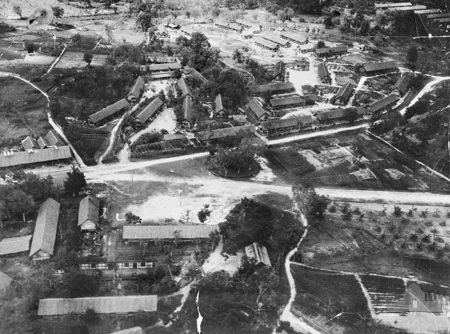
The Australian 9th Division liberated thousands of Allied prisoners and civilian internees from Japanese captivity on Borneo. The camp’s liberation revealed the horrific conditions endured by prisoners throughout the Pacific War.
Survivors emerged severely malnourished and traumatized after years of brutal treatment and forced labor. This liberation marked a significant step toward ending Japanese occupation of Southeast Asian territories.
1919 – United States Marines Invade Honduras
American military forces intervened in Honduran politics to protect U.S. commercial interests and maintain regional stability. The invasion reflected America’s growing willingness to use military force in Latin America.
Marine units quickly secured key ports and government buildings while facing minimal local resistance. This intervention exemplified the “Dollar Diplomacy” era’s blend of economic and military influence.
Science and Discovery Milestones on September 11
1997 – NASA’s Mars Global Surveyor Reaches the Red Planet
The sophisticated spacecraft successfully entered Martian orbit after a ten-month journey from Earth. This mission marked a triumphant return to Mars exploration following previous mission failures.
The Surveyor carried advanced instruments designed to map Martian topography and analyze atmospheric conditions. Its data would revolutionize scientific understanding of Mars and guide future exploration missions.
2007 – Russia Tests the Father of All Bombs
Russian military forces detonated the most powerful conventional weapon ever created, demonstrating unprecedented destructive capability. The massive thermobaric bomb produced an explosion equivalent to a small nuclear device.
This test showcased Russia’s advanced weapons technology while sending a clear message about military capabilities. The demonstration marked a significant escalation in conventional weapons development worldwide.
1968 – John Eliot Gardiner Conducts Monteverdi’s Vespro at the Proms
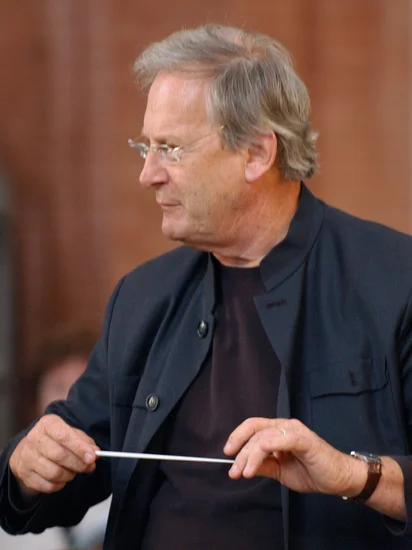
The young conductor premiered a historically informed performance of Monteverdi’s masterpiece with the Monteverdi Choir. This groundbreaking concert helped establish the early music revival movement.
Gardiner’s authentic approach to baroque performance practice influenced generations of musicians and scholars. The performance demonstrated how historical research could illuminate centuries-old musical treasures.
Cultural and Arts Events on September 11
1995 – World Chess Championship Held in World Trade Center
Garry Kasparov faced challenger Viswanathan Anand in the first game of their championship match on the South Tower’s 107th floor. The prestigious venue symbolized chess’s intellectual prestige and global appeal.
The dramatic setting provided spectacular views of New York City while the world’s greatest players competed. This match represented the pinnacle of chess achievement in an iconic architectural landmark.
1968 – Monteverdi’s Vespro Performed at Historic Proms Concert
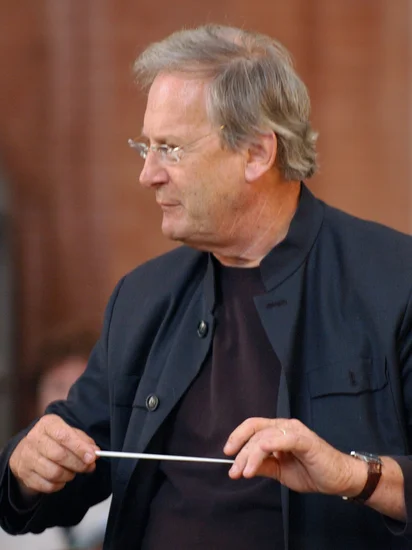
John Eliot Gardiner conducted a revolutionary performance of Monteverdi’s sacred masterpiece using period instruments and authentic techniques. The concert marked a watershed moment in early music performance.
This historically informed approach revealed new dimensions of baroque musical expression previously obscured by modern interpretations. The performance influenced countless musicians to explore authentic period performance practices.
1941 – Pentagon Construction Begins

Ground was broken for the massive military headquarters that would become the world’s largest office building. The Pentagon’s construction represented America’s growing commitment to military preparedness.
Architects designed the innovative five-sided structure to accommodate thousands of military personnel and defense contractors. The building’s completion would centralize American military command and symbolize national defense capabilities.
Religious and Social Events on September 11
1921 – Nahalal Jewish Moshav Established in Palestine
Jewish settlers founded the cooperative agricultural community of Nahalal, implementing innovative collective farming principles. This pioneering settlement became a model for future kibbutz and moshav communities.
The circular village design reflected idealistic social planning while maximizing agricultural efficiency and community cooperation. Nahalal’s success demonstrated the viability of Jewish agricultural settlement in Palestine.
1914 – Russian Language Teaching Mandated in Finnish Schools
Tsar Nicholas II’s government intensified Russification policies by requiring expanded Russian language and history instruction in Finnish schools. This cultural imperialism aimed to weaken Finnish national identity.
The oppressive measures sparked fierce resistance from Finnish educators and nationalist organizations. These policies strengthened Finnish determination to preserve their cultural independence and language.
1970 – Dawson’s Field Hijackers Release Most Hostages

Palestinian terrorists released 88 of their hostages while continuing to hold Jewish and Israeli passengers captive. The selective release highlighted the attack’s specifically anti-Semitic and anti-Israeli motivations.
This dramatic gesture intensified international attention on the Palestinian cause while demonstrating the effectiveness of aerial terrorism. The remaining hostages endured two more weeks of captivity.
1982 – International Forces Withdraw from Beirut
Multinational peacekeeping forces departed Lebanon after guaranteeing Palestinian refugee safety following Israel’s invasion. Their withdrawal removed crucial protection for vulnerable civilian populations.
The peacekeepers’ departure created a dangerous security vacuum that enabled subsequent massacres. This tragic miscalculation demonstrated the complexities of international humanitarian intervention.
Business and Economic Events on September 11
1972 – San Francisco Bay Area Rapid Transit Begins Operations
The revolutionary BART system commenced passenger service, connecting San Francisco with East Bay communities through underwater tunnels. This engineering marvel transformed regional transportation patterns.
The electric rail system offered a clean alternative to automobile travel while spurring suburban development. BART’s success demonstrated public transit’s potential to reshape metropolitan growth patterns.
1995 – PCA World Chess Championship Held in World Trade Center
The first game of the prestigious championship match took place on the South Tower’s 107th floor, showcasing corporate America’s cultural patronage. This venue highlighted chess’s intellectual prestige and commercial appeal.
The dramatic setting provided global television coverage while demonstrating the World Trade Center’s role as a cultural landmark. The match represented the intersection of intellectual achievement and commercial success.
2008 – Major Channel Tunnel Fire Disrupts European Commerce
A massive fire broke out on a freight train within the Channel Tunnel, forcing closure of this vital European transportation link. The incident disrupted trade flows between Britain and continental Europe.
The six-month closure caused significant economic losses while highlighting the vulnerability of critical infrastructure. Emergency crews worked tirelessly to restore this essential commercial connection.
Transportation and Infrastructure on September 11
1903 – Milwaukee Mile Speedway Hosts First Race

The world’s oldest major speedway conducted its inaugural race in West Allis, Wisconsin, establishing a legendary venue for American motorsports. This historic track would host countless racing champions over the decades.
The Milwaukee Mile’s unique design and challenging layout attracted the era’s greatest drivers and manufacturers. The facility’s longevity demonstrated the enduring appeal of oval track racing.
1905 – Ninth Avenue Derailment Kills 13 in New York City

A catastrophic elevated railway accident devastated a busy Manhattan intersection, highlighting the dangers of early urban mass transit. The tragedy prompted immediate safety reforms and infrastructure improvements.
Emergency responders struggled to rescue victims from the wreckage while shocked witnesses watched in horror. This disaster accelerated the development of safer subway transportation systems.
1916 – Quebec Bridge Central Span Collapses

The massive cantilever bridge suffered its second catastrophic failure, killing 11 workers during construction of the central span. This engineering disaster followed the complete collapse of the earlier structure.
The repeated failures highlighted the challenges of building long-span bridges while spurring advances in structural engineering. The eventual successful completion became a testament to engineering perseverance.
1972 – BART System Begins Revolutionary Service
The San Francisco Bay Area Rapid Transit system commenced operations, connecting urban centers through innovative underwater tunnels. This engineering achievement transformed regional transportation and urban development.
The electric rail system offered clean, efficient travel while reducing automobile dependence throughout the metropolitan area. BART’s success inspired similar rapid transit projects nationwide.
Sports and Recreation on September 11
1903 – First Race at Milwaukee Mile Speedway

The world’s oldest major speedway hosted its inaugural race in West Allis, Wisconsin, establishing a legendary venue for American motorsports. Early automobile racing enthusiasts gathered to witness this historic competition.
The one-mile oval track attracted fearless drivers piloting primitive but powerful racing machines. This pioneering event helped establish automobile racing as a major spectator sport.
1995 – Chess Championship Opens in World Trade Center
World Champion Garry Kasparov faced challenger Viswanathan Anand in the first game of their championship match on the South Tower’s 107th floor. The prestigious venue elevated chess’s profile as an intellectual sport.
The dramatic Manhattan skyline provided a spectacular backdrop for this battle of minds. Television coverage brought the ancient game to global audiences while showcasing American cultural sophistication.
1968 – Monteverdi Performance at London Proms

John Eliot Gardiner conducted a groundbreaking performance of Monteverdi’s Vespro della Beata Vergine at the prestigious London Proms. This concert revolutionized early music performance and scholarship.
The authentic period performance revealed new dimensions of baroque musical expression previously unknown to modern audiences. The concert influenced countless musicians to explore historically informed performance practices.
Notable Births on September 11
1901 – D. W. Brooks, American Agricultural Innovator
American farmer and businessman D. W. Brooks entered the world, destined to revolutionize agricultural cooperatives. His childhood on a Georgia farm shaped his understanding of rural economic challenges.
Brooks would later found Gold Kist, one of America’s largest agricultural cooperatives. His innovations helped thousands of farmers achieve economic stability and prosperity.
1913 – Bear Bryant, Legendary Football Coach
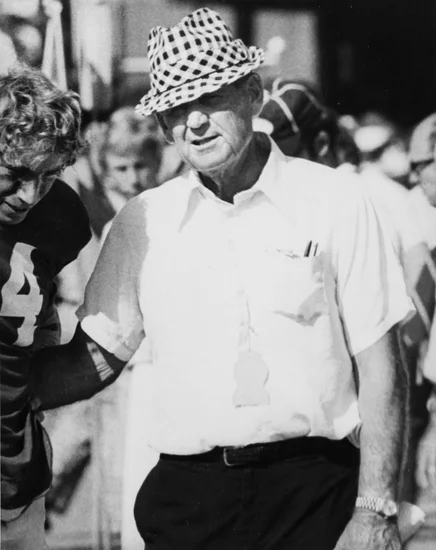
Paul “Bear” Bryant was born in Arkansas, beginning a life that would transform college football. His rural upbringing instilled the toughness and determination that defined his coaching philosophy.
Bryant would lead Alabama to six national championships while becoming college football’s most recognizable figure. His innovative coaching methods influenced generations of football strategists.
1917 – Ferdinand Marcos, Philippine President
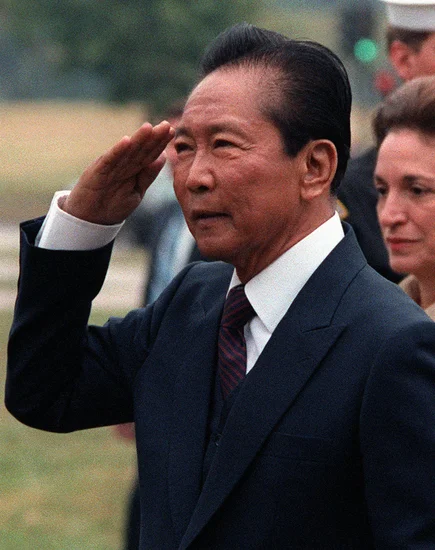
Ferdinand Marcos was born in the Philippines, beginning a controversial political career that would span decades. His early legal training shaped his understanding of political power and constitutional authority.
Marcos would serve as the Philippines’ tenth president before declaring martial law and ruling as a dictator. His regime’s human rights abuses and corruption scandals overshadowed his early political achievements.
1935 – Arvo Pärt, Estonian Composer

Estonian composer Arvo Pärt entered the world, destined to become one of the most performed contemporary classical composers. His early musical training occurred under Soviet cultural restrictions.
Pärt would develop his distinctive “tintinnabuli” style, creating spiritually resonant music that transcended political boundaries. His compositions bridged Eastern and Western musical traditions.
1940 – Brian De Palma, American Film Director

Brian De Palma was born in New York, beginning a career that would redefine American cinema. His early fascination with visual storytelling shaped his distinctive directorial style.
De Palma would direct iconic films like “Carrie” and “Scarface,” establishing himself as a master of suspense and visual technique. His innovative camera work influenced countless filmmakers.
1967 – Harry Connick Jr., American Musician

Harry Connick Jr. was born in New Orleans, surrounded by the city’s rich musical heritage. His early piano training laid the foundation for his multifaceted entertainment career.
Connick would become a Grammy-winning musician, actor, and television personality. His jazz interpretations and original compositions helped revive interest in American standards.
1967 – Moby, Electronic Music Pioneer

Richard Melville Hall, known as Moby, was born in New York City, beginning a career that would revolutionize electronic music. His early exposure to punk and electronic sounds shaped his innovative approach.
Moby would create groundbreaking albums like “Play” that brought electronic music to mainstream audiences. His sampling techniques and atmospheric compositions influenced countless electronic artists.
Notable Deaths on September 11
1973 – Salvador Allende, Chilean President

Salvador Allende died during the military coup that overthrew his democratically elected government. The Chilean physician and politician had championed socialist reforms throughout his political career.
Allende’s death marked the end of Chilean democracy and the beginning of Pinochet’s brutal dictatorship. His legacy as a democratic socialist leader inspired leftist movements worldwide.
1948 – Muhammad Ali Jinnah, Pakistan’s Founder

Muhammad Ali Jinnah, Pakistan’s first Governor-General, died just over a year after the nation’s independence. The lawyer and politician had led the Muslim League’s campaign for Pakistani statehood.
Jinnah’s death deprived the young nation of its most unifying leader during crucial formative years. His vision of a secular, democratic Pakistan shaped the nation’s founding principles.
1971 – Nikita Khrushchev, Soviet Leader
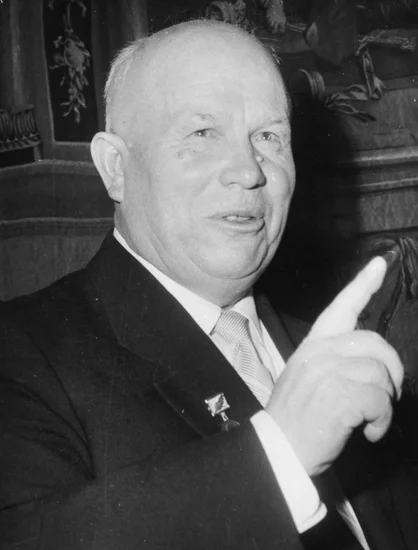
Former Soviet Premier Nikita Khrushchev died in relative obscurity after his removal from power. The Ukrainian-born leader had initiated crucial reforms and navigated dangerous Cold War crises.
Khrushchev’s death marked the end of an era of Soviet de-Stalinization and tentative liberalization. His legacy included both the Cuban Missile Crisis and the beginnings of détente.
1987 – Lorne Greene, Canadian Actor

Lorne Greene, beloved star of television’s “Bonanza,” died at age 72. The Canadian actor had become one of America’s most recognizable television fathers through his portrayal of Ben Cartwright.
Greene’s rich voice and commanding presence made him a television icon during the medium’s golden age. His work helped establish the western genre as a television staple.
2002 – Johnny Unitas, NFL Legend
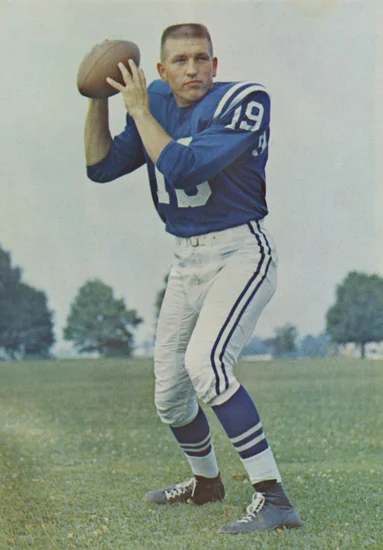
Johnny Unitas, the Baltimore Colts’ legendary quarterback, died at age 69. The “Golden Arm” had revolutionized professional football with his passing accuracy and leadership skills.
Unitas held numerous NFL records and led the Colts to three championship victories. His playing style and sportsmanship defined quarterback excellence for generations.
2012 – J. Christopher Stevens, U.S. Ambassador
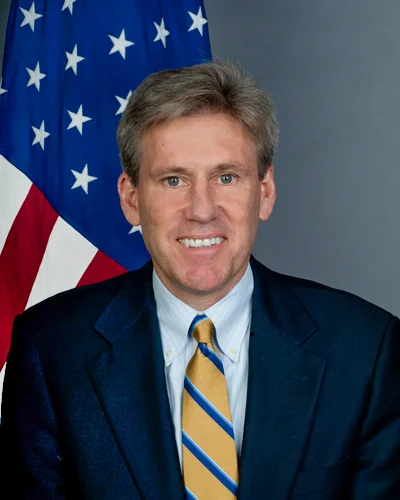
J. Christopher Stevens died in the terrorist attack on the U.S. consulate in Benghazi, Libya. The diplomat had dedicated his career to Middle Eastern affairs and democratic development.
Stevens’ death highlighted the dangerous conditions facing American diplomats in post-revolutionary Libya. His commitment to public service and regional expertise exemplified diplomatic courage.
Holidays and Observances on September 11
Patriot Day – United States Memorial
Americans observe Patriot Day to honor the victims of the September 11, 2001 terrorist attacks. This solemn commemoration includes moments of silence and memorial services nationwide.
The observance keeps alive the memory of those who died while celebrating the heroism of first responders. Communities across America gather to remember this defining moment in national history.
National Day of Service and Remembrance

This American observance encourages citizens to honor September 11 victims through volunteer service and community action. The day transforms grief into positive action benefiting local communities.
Volunteer organizations coordinate special projects while individuals perform acts of kindness and service. This observance demonstrates how tragedy can inspire ongoing commitment to public service.
National Day of Catalonia

Catalans celebrate their national day commemorating the 1714 fall of Barcelona during the War of Spanish Succession. This observance affirms Catalan cultural identity and political aspirations.
The celebration includes cultural events, political demonstrations, and displays of Catalan symbols. The day serves as a focal point for ongoing debates about Catalan independence.
Teachers’ Day – Argentina
Argentina honors educators on this day, recognizing their crucial role in national development and social progress. The celebration includes special ceremonies and recognition of outstanding teachers.
Schools organize special programs while communities acknowledge teachers’ contributions to society. This observance reflects Argentina’s commitment to educational excellence and professional recognition.
